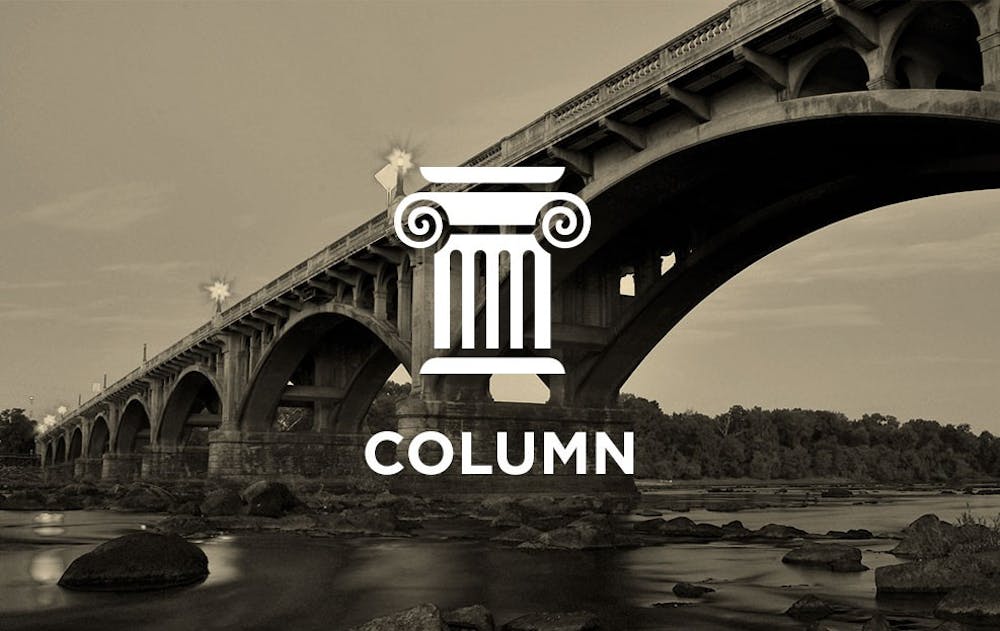Recently, a common topic of conservative conversation has been how quickly and decisively the public has changed their minds on gay marriage. A decade ago, only 42 percent of Americans supported legalizing same sex marriage. In 2006, only Massachusetts had legalized gay marriage, with a handful of other states offering domestic partnerships or civil unions to gays. Now 60 percent of citizens are in favor of it, and thanks to the Supreme Court’s ruling last June, it is legal in all fifty states.
Christian media groups have long warned that bible-believing conservatives would come under increasing pressure from the government to conform to its positions on gay rights, and responses like Griffin Hobson’s column last week titled “No Tolerance for Intolerance” do nothing to allay that fear.
He paints Christian conservatives as a deluded, irrational bunch of bigots recoiling in horror from imaginary abuses. He claims that examples of these abuses are "nebulous," and then jumps straight into a caricatured depiction of how evangelicals view gay people. Supposedly, the everyman conservative Christian believes that homosexuals “herald the apocalypse and are agents of Satan sent to drag America into the depths of depravity” and that God hates them. This lopsided depiction of an issue that many evangelical churches are prayerfully discussing how to respond to is unfortunate and contributes to the leftist narrative of Christian conservatives as extremists.
Such an inclination for demonizing the other side is not a trait found in those interested in dialogue and open thinking. Yet it is an inclination that is rampant in the left-leaning media. Over and over again, those who oppose the gay rights agenda are referred to as “anti-gay,” “bigoted,” and “homophobes.” This kind of language contributes to our charged political climate that is perpetually outraged and ready to attack those who reject conformity.
The abuses Hobson derides as "nebulous" are real and deserving of the fear that they have evoked. State and federal judiciaries have become committed to enforcing conformity to the gay rights cause, ruling, for example, against bakers who declined to cater for gay weddings, but backing up one who refused to make a cake saying homosexuality is sinful. While many small-business owners have faced fines for denying service to gay weddings, that is not the only front on which the gay rights agenda is advancing at the expense of religious freedom.
A prominent fear is that Christian colleges will lose their accreditation for refusing to change their statements about marriage. When asked by Supreme Court Justice Samuel Alito if this was likely to be an issue if the Court ruled for gay marriage, Solicitor General Donald Verrilli replied, “I don’t think I can answer that question without knowing more specifics, but it’s certainly going to be an issue. I don’t deny that.”
Considering the general trend of expanding government reach and diminishing willingness to accommodate religious objectors, unless a dramatic change toward protecting religious beliefs instead of forcing compliance with the same-sex marriage agenda takes place, those institutions could soon be at risk.
Last week's article generalizes about the nature of the denial of service cases, resulting in crucial misinformation. He mentions that small-business owners “get sued for refusing to make a cake for a same-sex couple,” without clarifying that in almost all cases, these business owners refuse to serve them not because of the customers’ sexual orientation but because the cake, or flowers, or photography service will be used in a same-sex ceremony.
Florists and bakers involved in these cases point to the fact that they have arranged and baked for gays requesting services not related to same-sex marriage for years. It is not that these business owners hate gays, but that they feel that by providing services for a gay wedding, they would be affirming its legitimacy or morality, which would be contrary to their beliefs.
Our government, which from its earliest days has fiercely protected religious liberty, should not lightly undertake to force Americans to ignore their convictions.
Hobson argues that if business owners are permitted to decline to service weddings, the principle will extend to sanctioning denial of “food, shelter, clothing, housing, transportation and medical care.” He fails to notice that it is only providing services that Christians believe would affirm an un-biblical redefinition of marriage that creates the conflict. No Christian acting in accordance with their faith should deny necessary services to a person because of their sexual orientation, or for that matter their gender, race, or socioeconomic background.
In his article, Hobson uses a traditional liberal tool, the portrayal of the oppressed minority as deserving of our sympathies. But with regards to gay rights, those pushing the gay agenda are not the minority anymore. A majority of Americans now support same-sex marriage, along with President Obama, the Supreme Court, and most mainstream media organizations. Though it is a useful fantasy to claim oppression and marginalization for gay rights activists, it is simply no longer true. In fact, the tables have been turned, so that those who diverge from this newly imposed hegemony of social outlook are at risk of being trampled underfoot.
To borrow syntactical structure from Hobson, if religious liberty can be ignored at the discretion of the powerful, the marginalized have no rights at all.

